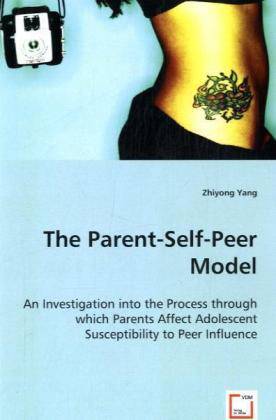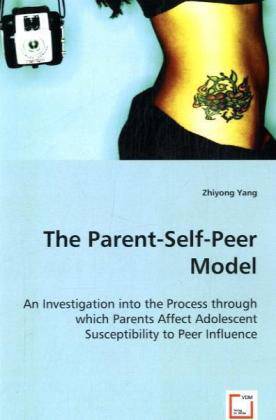
- Afhalen na 1 uur in een winkel met voorraad
- Gratis thuislevering in België vanaf € 30
- Ruim aanbod met 7 miljoen producten
- Afhalen na 1 uur in een winkel met voorraad
- Gratis thuislevering in België vanaf € 30
- Ruim aanbod met 7 miljoen producten
Zoeken
The Parent-Self-Peer Model
An Investigation into the Process through which ParentsAffect Adolescent Susceptibility to Peer Influence
Zhiyong Yang
Paperback | Engels
€ 63,45
+ 126 punten
Omschrijving
Adolescents are often susceptible to the opinions of peers,such as their friends, activity partners and co-workers. In twostudies, we test an integrative model of adolescent susceptibilityto peer influence that includes parenting style as driver, theadolescent self-concept as mediator, and the cultural context asmoderator of the level of susceptibility. The overarching findingin our studies is that responsive parenting reduces susceptibilityby influencing the adolescent self-concept, while psychologicallycontrolling parenting increases susceptibility without influencingthe adolescent self-concept. We also show that culture can modifythese effects of parenting such that, within collectivist easterncultures, psychological control influences susceptibility to peerinfluence through changes in adolescents? self-concept.
Specificaties
Betrokkenen
- Auteur(s):
- Uitgeverij:
Inhoud
- Aantal bladzijden:
- 112
- Taal:
- Engels
Eigenschappen
- Productcode (EAN):
- 9783639025910
- Verschijningsdatum:
- 27/05/2008
- Uitvoering:
- Paperback
- Afmetingen:
- 152 mm x 220 mm
- Gewicht:
- 166 g

Alleen bij Standaard Boekhandel
+ 126 punten op je klantenkaart van Standaard Boekhandel
Beoordelingen
We publiceren alleen reviews die voldoen aan de voorwaarden voor reviews. Bekijk onze voorwaarden voor reviews.







